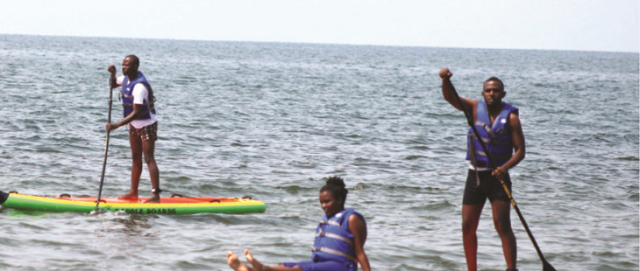
In July 2014, the Rwanda Development Board (RDB), in a press release titled “Rwanda gears up for surge in tourism demand” announced an $860-million tourism income target by 2017.
Even though the jury is still out regarding this then ambitious target, Rwanda’s tourism industry is clearly more boisterous today. It has been recording impressive annual average growth over the last five years. Today, tourism is the country’s leading source of foreign exchange, followed by mining, and the government predicted that revenue from the sector would rise 25%in 2016 to reach $400m. And indicators show the momentum is going to be carried on for the next three years as the country moves towards its Vision 2020 landmark.
The 2016 results are not yet available, but data from RDB indicates that in 2015 the country attracted 1.3 million tourists and $318 million of their cash. RDB recorded $305 tourism income in 2014, $293 in 2013, $282 in 2012 and $251 in 2011.
This shows that the tourism industry has been growing steadily for the last five years, majorly due to the favourable environment that has enabled increasing number of tourists to choose Rwanda as the country of destination.
The government is focused on attracting more tourist arrivals. Last year in September, the government signed a $818 million deal with Portugal’s Mota-Engil to build a new airport in Bugesera that eventually will have the capacity to handle 4.5 million passengers per year.
Tremendous efforts have also, over recent years, been made to promote the sector, among them the MICE strategy in 2014 that has seen the country invest massively in infrastructure development to attract business tourists. In fact, it’s the opening of new hotels that greatly boosted Rwanda’s tourism in 2016. The conference tourism sub-sector registered its best performance ever, attracting more than 20,000 conference visitors.
Rwanda’s tourism sector also got a shot in the arm in 2014 when three partner states of the East African Community (EAC) namely; Kenya, Rwanda and Uganda, under the Northern Corridor Integration Projects initiative, waived visa fees for foreign residents living within the 3 countries in order to allow them easier access to the region’s diverse offering. This might also have contributed significantly to the boost in tourism industry that the country is currently experiencing.
Greg Bakunzi, founder of Musanze-based Amahoro Tours, is optimistic that the country can reach its full potential in tourism but cautions that innovation is needed to grow the sector.
“There is hope that the tourism industry will grow further in 2017, as long as we come up with new products to sell,” he says. “RDB needs to come up with more new products and market them on top of gorillas as this is the only way we can attract more tourists,” he says.
Towards the end of last year, as one of the strategies to increase tourism revenues, RDB launched the Tembera U Rwanda domestic tourism campaign, which was meant to encourage Rwandans to take more holidays at home.
 The Independent Uganda: You get the Truth we Pay the Price
The Independent Uganda: You get the Truth we Pay the Price





